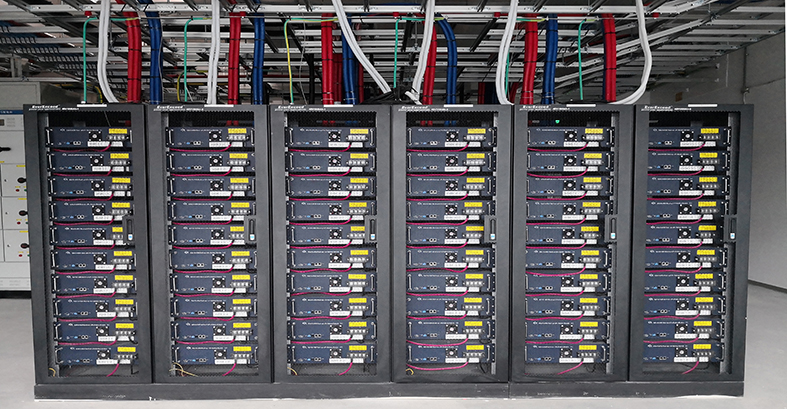EverExceed
Lithium iron phosphate battery systems are being paired with uninterruptible power systems (
UPS) in many applications like
data centers,
telecom, etc. throughout the world. Experience from those applications combined with fast-improving technology and new safety standards and codes make lithium iron phosphate batteries a highly appealing energy storage solution for infrastructure professionals.
This article reviews the advantages of lithium iron phosphate batteries compared to VRLA in UPS applications and within the critical infrastructure industry.
Why Lithium batteries are a better choice over Lead acid batteries for your UPS application?
Let’s briefly review the benefits of using lithium iron phosphate batteries for UPS applications.
First, we must consider the reasons lithium batteries are a natural fit for next generation power backup systems where system operation, availability and space constraints must be balanced with cost.
In general, lithium batteries have a higher energy density, resulting in a 50% to 75% reduction in footprint that can be utilized to add servers and other IT equipment in the case of data center’s UPS application or to reduce facility construction costs. Along with their smaller footprint, lithium-battery systems bring a significant reduction in weight, which can also be a major factor into the telecom BTS site design costs.
Lithium iron phosphate batteries also have longer lifespan, which saves on replacement costs and operational disruptions.
|
KEY CHARACTERISTIC
|
LEAD-ACID (VRLA)
|
LITHIUM IRON PHOSPHATE
|
|
Energy Density
|
Low
|
High
|
|
Lifespan
|
Less
|
Long
|
|
Weight
|
High
|
Low
|
|
Footprint Required
|
Large
|
Small-Moderate
|
|
Recharge
|
Slow
|
Fast
|
|
Maintenance Cost
|
Moderate
|
Low
|
|
Cooling Required
|
High
|
Low-Moderate
|
|
Battery Management
|
External needed
|
Built-In
|
|
Battery Monitoring
|
Optional
|
Highly Recommended
|
Lithium iron phosphate battery offers an effective battery life that is easily more than double that of a traditional VRLA. This alone reduces the headaches of frequent VRLA battery replacements. Lithium batteries are designed with battery management capabilities, including embedded management at the cell, module and cabinet levels. This allows sophisticated data collection of the battery’s health to better deliver predictable, consistent and safe performance.
Lithium iron phosphate batteries can operate at higher temperatures without sacrificing battery life. VRLA batteries lose 50% of battery life for every 10°C of heat rise.Extended life and lower maintenance reduce operational costs, lowering the total cost of ownership (TCO) over VRLA batteries.
Simply put, these batteries are smaller, lighter, longer-lasting and more efficient than your traditional VRLA UPS batteries.

